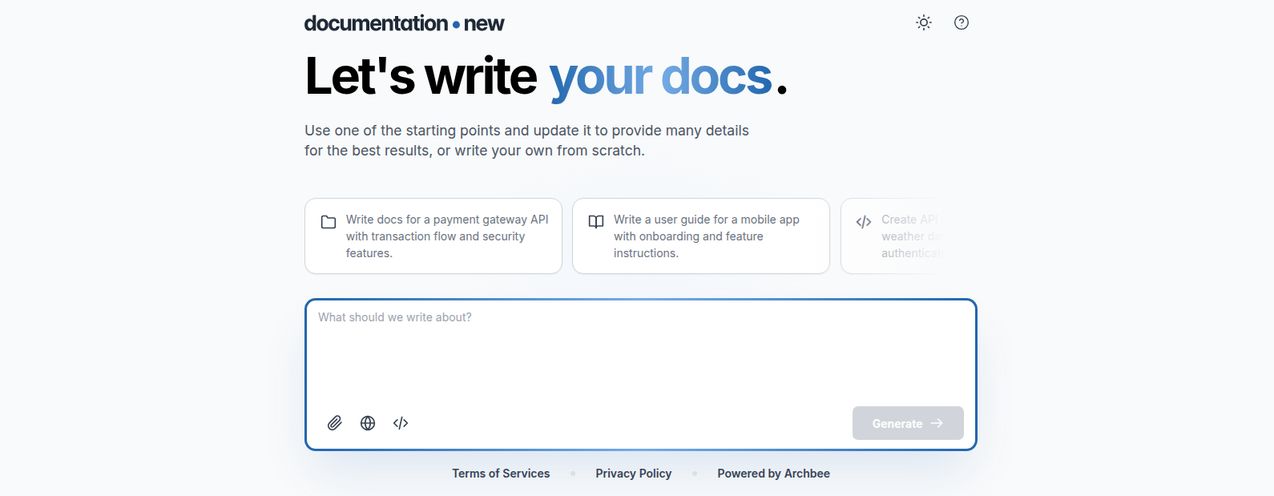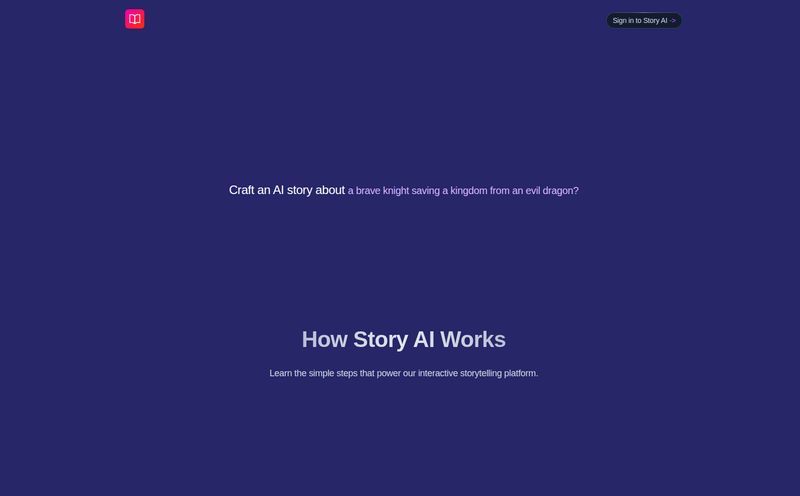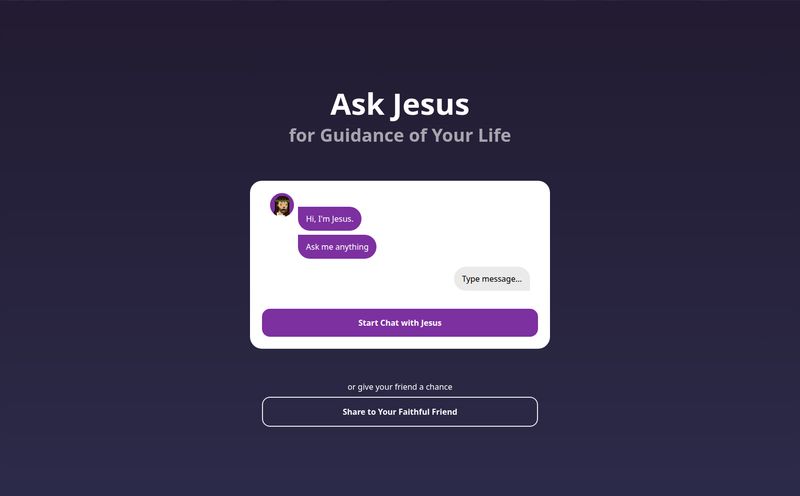It’s Saturday night. You’ve been putting it off all week, juggling hospital visits, a leaky baptistry, and that one couple’s counseling session that could’ve been an entire season of a reality show. Now, the blank page of a Word document is staring back at you. Taunting you. The blinking cursor is a tiny, rhythmic drumbeat of doom. We’ve all been there. “Preacher’s block” is a very real thing.
For years, the solution was more coffee, another commentary, or a desperate prayer. But now, there’s a new kid on the block: Artificial Intelligence. I’ve seen AI tools for copywriting, for coding, for creating meal plans… so I guess it was only a matter of time before it came for the pulpit. Enter SermonGPT, an AI-powered assistant designed specifically to help write sermons.
The promise is tantalizing, isn’t it? Less time struggling with structure, more time focusing on delivery and pastoral care. But does it work? Or does it just churn out soulless, generic fluff? I decided to poke around and see for myself.
So, What's the Deal with SermonGPT?
At its core, SermonGPT is exactly what it sounds like: a GPT model, like the one behind ChatGPT, but supposedly trained and fine-tuned for the specific task of sermon writing. You give it a topic or a scripture passage, specify an event (like a Sunday service, wedding, or youth group), and choose a desired style—maybe expository, topical, or narrative. Then, you hit a button and… well, something happens.
According to its own site, it’s already generated over a thousand sermons. That might not sound like a huge number in the grand scheme of the internet, but it tells me this is a specialized, relatively new tool finding its footing. It’s not just a generic text generator; it’s aiming for a very specific niche. A very, very specific niche.

Visit SermonGPT
A Look Under the Hood: The Good, The Bad, and The AI
No tool is perfect, right? Especially not one trying to automate a task that’s so deeply personal and, for many, spiritual. After digging into SermonGPT and seeing what it offers, a few things became pretty clear.
The Time-Saving Grace
Let's start with the obvious win. The biggest selling point here is speed. For bi-vocational pastors, volunteer youth leaders, or anyone stretched thin (so, basically everyone in ministry), the idea of getting a first draft in minutes instead of hours is a game-changer. It can be a fantastic cure for that dreaded blank-page paralysis. Think of it less as a ghostwriter and more as a research assistant who’s really, really fast at outlining. It can pull together key points, find related scriptures, and structure a basic three-point message before you’ve even finished your first cup of coffee. That alone is pretty compelling.
The Question of Originality
Here’s the rub, though. AI is, by its nature, a remix machine. It learns from a massive dataset of existing text and creates something that is statistically probable. This can sometimes lead to content that feels… familiar. A little generic. It might produce a perfectly acceptable sermon on grace, but will it have that one story from your childhood that makes the concept click? Will it connect to the specific struggle your community is facing this week? Unlikely.
Any output from SermonGPT is going to require a heavy dose of you. Your stories, your personality, your specific theological convictions. If you just copy and paste, your congregation will know. They might not say anything, but they'll feel it.
The Creativity Conundrum
This is my biggest personal reservation. Is there a danger that relying on a tool like this could make us lazy thinkers? The wrestling with the text, the hours spent in study and prayer—that’s often where the deepest insights come from. That’s the process that shapes the preacher as much as it shapes the sermon. Handing the initial heavy lifting over to an algorithm could, over time, atrophy those creative and theological muscles. It's a classic double-edged sword: a tool that helps might also become a crutch that weakens.
What's the Price of an AI-Generated Word?
This is where things get interesting and a bit… scrappy. Right now, if you want the full-fledged version, you can't just slap down a credit card. You have to join the waitlist for SermonGPT Pro. And that waitlist is a simple Google Form. As an SEO and tech guy, I see this and I smile. This is the hallmark of a product in its infancy, feeling out its market.
The form itself is revealing. It asks what you think the service is worth, posing questions like:
- At what price (per month) would you consider SermonGPT to be so expensive that you would not consider buying it?
- At what price (per month) would you consider SermonGPT to be great value for money?
They are literally asking their first potential users to help them set their pricing. It’s a bold, transparent move. The promised Pro features include creating unlimited, in-depth sermons tailored to your style, and the ability to store them for future use. For now, there’s no public price tag. My guess? They’ll land somewhere in the typical SaaS range of $20-$50 a month once they figure it out.
Who Is This Tool Really For?
So, who should sign up for that waitlist? I don’t think this is for the seasoned theologian who has a meticulous 20-hour-a-week sermon prep process. They’re not the target audience.
But I can see it being incredibly useful for:
- The Bi-Vocational Pastor: The person juggling a 40-hour work week on top of their ministry duties.
- The Youth Leader: Who needs a solid 15-minute talk for Wednesday night and has about 30 minutes to prepare.
- The Church Planter: Who is wearing ten different hats at once and needs to streamline every possible task.
- The Preacher in a Rut: Someone who needs a fresh idea or a different angle on a familiar passage to get their own creative juices flowing.
It’s a starting block, not the entire racetrack. And for some, that's exactly what they need.
AI in the Pulpit: The Broader Conversation
The rise of tools like SermonGPT and the conversation around AI in ministry isn't going away. It brings up fascinating and important questions about authenticity, inspiration, and the role of the Holy Spirit in sermon preparation. Some will argue, quite compellingly, that sermon prep is a sacred act that should never be outsourced to a machine.
I tend to land somewhere in the middle. I don't see this as being much different from using a commentary, a lectionary, or a book of sermon illustrations. They are all tools. A hammer can be used to build a house or to smash a window. The morality is in how you use it. If SermonGPT is used to avoid the work of prayer and study, that's a problem. If it’s used to organize initial thoughts so a pastor can spend more time on exegesis and application, then what's the harm?
The Glitches and Growing Pains
It's also worth pointing out that this is clearly a new platform. When trying to follow some of their links, I was met with a classic Firebase "Invalid Dynamic Link" error. This isn’t a major criticism—it happens with new tech projects all the time. But it's a good reminder that this is an experimental, evolving service. It's not a polished, billion-dollar platform. It's a tool in progress, which is kind of exciting to watch.
Frequently Asked Questions about SermonGPT
- Is SermonGPT free to use?
- There appears to be a basic functionality, but the full experience is part of SermonGPT Pro, which is currently on a waitlist and will be a paid subscription. The price is not yet public.
- Can SermonGPT match my specific theology or church tradition?
- It can try, based on your prompts. However, for deep or nuanced theological points specific to your denomination or conviction, you will absolutely need to review and edit the output. Don't trust it to handle complex doctrines on its own.
- How is this different from just using the regular ChatGPT?
- Presumably, SermonGPT is built on a similar base but has been specifically trained and prompted with a dataset of sermons, theological texts, and scripture. This should make its output more tailored to a sermon's structure and tone than a generic AI model.
- Will my sermon sound like a robot wrote it?
- Only if you copy and paste it directly. The key is to use it as an outline or a first draft. You have to weave in your own voice, your own stories, and your own passion. Without that, yes, it will likely feel flat and impersonal.
- Is SermonGPT still under development?
- Absolutely. The use of a Google Form for a Pro waitlist and the occasional broken link are clear signs that this is an early-stage product. Users who get in now are essentially beta testers.
Final Thoughts on SermonGPT
So, what's my final verdict? I'm cautiously optimistic, with a huge asterisk. SermonGPT isn't going to replace the prayerful, thoughtful work of a dedicated pastor. It can't. It doesn't have a soul, it hasn't lived a life, and it can't be led by the Spirit.
But as a tool? As an assistant to bust through writer's block and get a rough outline on paper? I think it has real potential. It could free up precious hours for busy ministry leaders, allowing them to focus more on people than on a blank page. The future of ministry tech is going to be interesting, and SermonGPT, for all its newness and quirks, is a fascinating glimpse of what's to come.
Reference and Sources
- SermonGPT Pro Waitlist: https://forms.gle/qQJg2Pn9ngAGXTgg7
- Christianity Today, "Thou Shalt Not Covet Thy Neighbor’s ChatGPT": https://www.christianitytoday.com/ct/2023/february-web-only/chatgpt-ai-sermon-writer-pastor-theology-preaching.html



